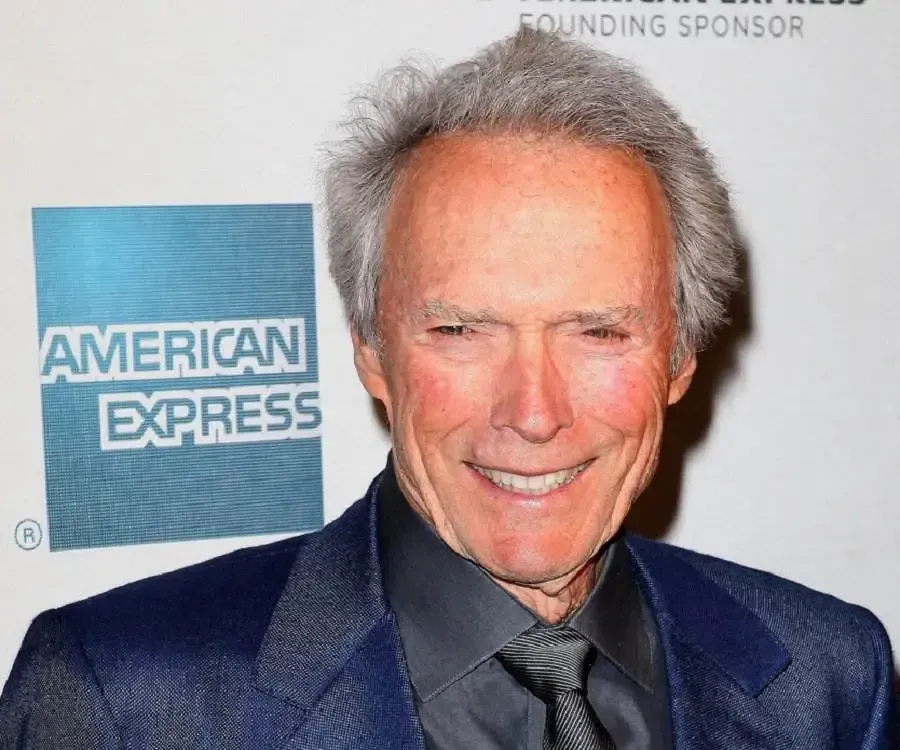Clint Eastwood biography offers a fascinating glimpse into the life of one of Hollywood’s most influential figures. From his humble beginnings in San Francisco to his rise as a celebrated actor and director, Eastwood’s career has spanned over seven decades and changed the landscape of cinema. Known for his iconic roles and impressive directorial ventures, Clint Eastwood films have often explored themes of independence and personal responsibility, reflecting his own worldview. His legacy as a filmmaker is not merely defined by his box office success but also by his distinctive style that melds traditional storytelling with a modern cinematic approach. In Shawn Levy’s comprehensive portrayal, Eastwood not only emerges as a relentless artist but also as a cultural icon whose impact continues to resonate across generations.
The story of Clint Eastwood transcends mere Hollywood glamour, revealing the journey of a man whose artistic contributions have redefined movie-making. Alternately regarded as an actor and a director, Eastwood represents a unique blend of rugged individualism and artistic ingenuity that is palpable in every frame of his work. His remarkable evolution from a television star to a directing heavy-hitter highlights his versatility and relentless pursuit of cinematic excellence. Through a kaleidoscope of genres, Eastwood’s extensive filmography, enriched by collaborations and solo projects, underscores his lasting imprint on the film industry. As an emblematic figure embodying the spirit of independence and creativity, Clint Eastwood’s story is one of toil, triumph, and a steadfast commitment to his craft.
Exploring Clint Eastwood’s Early Life and Film Beginnings
Clint Eastwood’s early life is a tapestry of experiences that shaped the man he would become. Born in 1930 in San Francisco, Eastwood’s formative years were marked by his family’s transient lifestyle. His father’s fluctuating employment due to the Great Depression forced the family to move frequently, a situation Eastwood himself described as attending ‘ten different schools in ten years.’ This instability fostered a sense of independence in him, which would later become a hallmark of his persona, both on and off the screen. Despite the challenges of a nomadic childhood, Eastwood found solace in the arts, particularly jazz, which played a significant role in his development as an artist.
In pursuit of a stable career in acting, Eastwood’s foray into Hollywood began somewhat indirectly. After serving in the Army during the Korean War, he was encouraged by friends to audition and explore his potential as an actor. His initial struggle at Universal Studios meant taking on minor roles while learning the ropes. However, a pivotal moment came when he embraced a teaching lesson about stoic presence, which resonated with him more than the intense emotional revelations associated with the ‘Method’ acting style popular at the time. This foundational experience equipped him with the tools to carve a path toward stardom.
The Rise of Clint Eastwood in Hollywood
The turning point in Clint Eastwood’s career emerged with his role on the television series ‘Rawhide,’ which transformed him into a household name during the late 1950s. This series not only showcased his rugged good looks but also set the stage for his collaboration with Italian director Sergio Leone. Leone’s vision for a distinctive style of Westerns allowed Eastwood to star in what would become a cult classic trilogy: ‘A Fistful of Dollars,’ ‘For a Few Dollars More,’ and ‘The Good, the Bad and the Ugly.’ Their success in Europe predated Eastwood’s recognition in the U.S. and established him as a global icon.
The unique aesthetic of these films, combined with Eastwood’s compelling performance, redefined the Western genre, introducing a grit and realism that audiences had not previously encountered. Following his success in Italy, Eastwood’s decision to return to the U.S. and establish his own production company was not only a bold career move but also a testament to his desire for creative independence. It marked the inception of a directorial journey that would solidify his legacy as one of Hollywood’s most influential filmmakers.
Clint Eastwood’s Directorial Vision and Methodology
Clint Eastwood’s transition from actor to director marks a significant evolution in his career, driven by a desire for artistic control. Establishing his production company, Malpaso, allowed him to bring his visions to life on his terms. His directorial debut, ‘Play Misty for Me,’ exemplified Eastwood’s commitment to a frugal yet impactful filming approach, which prioritized authenticity over lavish budgets. This sense of independence extended to his shooting style, often favoring spontaneous moments over extensive rehearsals, which paved the way for a unique cinematic language that prioritized storytelling over spectacle.
Eastwood’s adherence to economical filmmaking techniques has not only set him apart from his contemporaries but has also influenced the trajectory of modern cinema. He is renowned for maintaining a disciplined and minimalist set environment, eschewing traditional filmmaking flourishes in favor of raw portrayals of his narratives. This methodical approach culminated in resonant works like ‘The Bridges of Madison County,’ which brilliantly illustrates his belief in the beauty of simplicity and the power of quiet, intimate performances.
Clint Eastwood: A Journey Through Iconic Films
Clint Eastwood’s cinematic trajectory is studded with an impressive array of iconic films that reflect his unique storytelling style. From ‘Dirty Harry’ to ‘Unforgiven,’ Eastwood’s body of work not only showcases his versatility as an actor but also underscores his prowess as a director. His films frequently grapple with themes of morality, justice, and the complexities of human nature, making them resonate deeply with audiences across generations. Particularly, ‘Dirty Harry’ transformed Eastwood’s public image into that of a vigilante hero, allowing him to tap into the sociopolitical sentiments of his era.
Moreover, Eastwood’s directorial ventures have often challenged the boundaries of conventional narratives, inviting viewers to confront uncomfortable truths about violence and redemption. The critical success of films like ‘Mystic River’ and ‘Million Dollar Baby’ further cements his status as a master filmmaker who understands the intricacies of character development. His ability to handle sensitive subjects with nuance has earned him both accolades and scrutiny, cementing his legacy in the tapestry of American cinema.
Clint Eastwood’s Political and Personal Views Influencing Cinema
Throughout his career, Clint Eastwood’s political and personal philosophies have permeated his films, allowing him to explore themes that reflect his worldview. A self-proclaimed Libertarian, Eastwood has often incorporated ideas of personal responsibility and freedom into his storytelling. His films frequently depict characters wrestling with moral dilemmas, embodying the struggles between individual rights and societal norms. This linguistic interplay invites viewers to reflect on their values, challenging them to consider the implications of their choices within a modern context, as seen in ‘Gran Torino’ and ‘American Sniper.’
Moreover, Eastwood’s personal life, marked by complex relationships and profound contradictions, offers an intriguing lens through which to view his creative output. His affairs and tumultuous relationships have not only shaped his perspective but have also informed the depth of his characters in his films. This blend of personal narrative and cinematic artistry creates an authenticity that resonates with audiences, ultimately enriching his merit as a filmmaker.
The Legacy of Clint Eastwood in Modern Cinema
Clint Eastwood’s legacy in cinema is multifaceted, marked by a profound influence on both filmmaking and storytelling. Over his more than seven-decade career, he has become a pivotal figure in reshaping public perceptions of the Western and action genres, cultivating a nuanced portrayal of complex characters. Eastwood’s commitment to authentic narratives and his ability to provoke meaningful conversations through his films contribute significantly to his stature as an auteur in the film industry.
His vast repertoire of work is not merely a reflection of trends but serves as a cultural commentary on American society and its evolving values. As a director, Eastwood has pioneered a style that prioritizes strong, character-driven narratives, allowing him to create works that resonate deeply with audiences while inviting them to grapple with the moral implications posed by his characters. This dedication to storytelling encapsulates the artistic essence of his films and solidifies his legacy as a pivotal figure traversing the realms of acting and directing.
Examining Clint Eastwood’s Collaborations and Influence on Cinema
Throughout his prolific career, Clint Eastwood has collaborated with a myriad of talented actors, directors, and musicians, creating a distinctive cinematic language that many have come to admire. His partnerships with renowned figures such as Don Siegel and Robert Lorenz illustrate how collective creativity can enhance storytelling. Eastwood’s collaborative spirit has not only enriched his own films but has also fostered a sense of community within the industry, allowing emerging talent to benefit from his experience and insight. For instance, actors like Morgan Freeman and Meryl Streep have spoken highly of their experiences working with him, underscoring how his directorial approach has influenced their own craft.
Moreover, Eastwood’s influence extends beyond personal relationships, impacting contemporary filmmakers who seek to emulate his pragmatic approach to cinema. His ability to navigate the complexities of production while maintaining a strong artistic vision is a principle that resonates with many budding directors. Whether through mentorship or fostering dialogue among industry peers, Eastwood’s role in shaping the future of cinema is undeniable, as he continues to inspire countless filmmakers to explore the nuances of storytelling with courage and conviction.
Unveiling the Complexities of Clint Eastwood’s Personal Life
The complexities of Clint Eastwood’s personal life are as intriguing as his cinematic endeavors, underlining a figure who embodies contradictions. His relationships, often characterized by intensity and tumult, provide a glimpse into the man behind the icon. While Eastwood has enjoyed significant successes in his career, his personal relationships reveal a different narrative, one marked by a series of high-profile affairs and tensions, particularly with actresses like Sondra Locke. These dynamics illustrate how personal experiences can reverberate into his creative processes, influencing the themes of his films.
Furthermore, Eastwood’s political stances and public persona often blur the line between his art and personal beliefs, making him a subject of scrutiny and debate. His willingness to tackle controversial topics through his films resonates with a diverse audience, reflecting both his own values and those of the time. This interplay between his personal life and artistic output enriches the interpretation of his works, providing a more profound insight into the themes that dominate his filmography.
Clint Eastwood’s Enduring Impact on Future Generations in Film
Clint Eastwood’s impact on film extends to future generations of filmmakers, shaping a legacy that echoes through the industry. He has set a precedent for actors transitioning into successful directorial careers, showcasing that versatility can yield profound artistic exploration. New directors often cite Eastwood as a source of inspiration, attributing their understanding of character development and narrative craft to his exemplary body of work. His fearlessness in addressing complex societal issues resonates with aspiring filmmakers aiming to create thought-provoking cinema that challenges audiences to rethink traditional viewpoints.
Moreover, the principles Eastwood championed—pragmatism, independence, and a commitment to storytelling—continue to guide emerging artists as they navigate the industry’s evolving landscape. As a mentor and figurehead, his influence fosters an environment where innovation thrives, encouraging the next generation to experiment with their creative voices. The enduring nature of Eastwood’s legacy reinforces his status not only as a cinematic legend but also as a vital beacon for those who seek to push the boundaries of film.
Frequently Asked Questions
What does Shawn Levy’s biography, ‘Clint: The Man and the Movies’, reveal about Clint Eastwood’s career?
Shawn Levy’s biography provides an in-depth exploration of Clint Eastwood’s life and career, highlighting how Eastwood’s experiences shaped his filmmaking. The book showcases Eastwood’s independence as a director and actor, his methods of storytelling, and the evolution of his artistic vision over the decades.
How did Clint Eastwood’s early life influence his films?
Clint Eastwood’s early life, marked by frequent relocations and a solitary upbringing, deeply influenced his films. His experiences fostered a sense of independence and resilience, which are reflected in the characters and themes within his filmography, as detailed in Levy’s biography.
What significant impact did Eastwood’s role in ‘Dirty Harry’ have on his legacy?
Clint Eastwood’s role in ‘Dirty Harry’ transformed his public image, establishing him as a figure emblematic of the Silent Majority and influencing his legacy as a cinematic icon. This shift, discussed in Shawn Levy’s biography, showcased his adeptness at navigating Hollywood’s evolving landscape.
How did Clint Eastwood’s directing style differ from other contemporary filmmakers?
Clint Eastwood’s directing style, characterized by efficiency and a minimalist approach, sets him apart from many of his contemporaries. His preference for spontaneity over extensive rehearsals or rewrites, as highlighted in Levy’s biography, has contributed significantly to his unique storytelling and cinematic legacy.
What themes are prevalent in Clint Eastwood’s filmography according to Levy’s biography?
Levy’s biography identifies themes of personal responsibility, the cost of violence, and the complexities of power as central to Clint Eastwood’s films, reflecting his nuanced worldview and the era from which he emerged as a filmmaker.
What motivated Clint Eastwood to start his own production company, Malpaso?
Clint Eastwood founded his production company, Malpaso, to gain creative control over his projects and ensure artistic freedom in filmmaking, a key point discussed in Shawn Levy’s biography on Eastwood’s career trajectory.
How did Clint Eastwood’s relationship with Hollywood evolve throughout his career?
Clint Eastwood’s relationship with Hollywood evolved from an aspiring actor to a respected director and producer, navigating industry challenges while maintaining his independence, a journey thoroughly examined in Levy’s biography.
What role did Clint Eastwood’s political views play in his career as depicted in Levy’s biography?
Clint Eastwood’s political views, often classified as center-right, have influenced his cinematic choices and public persona. Levy’s biography discusses how these views resonate in the characters and narratives of his films, shaping his legacy.
In what ways did Clint Eastwood redefine modern cinema according to ‘Clint: The Man and the Movies’?
According to Levy’s biography, Clint Eastwood redefined modern cinema through his independent production methods, a focus on authenticity, and a distinctive approach to storytelling, which resonated with audiences and set a new standard in Hollywood.
How does ‘Clint: The Man and the Movies’ address Clint Eastwood’s personal relationships?
Levy’s biography delves into Clint Eastwood’s personal relationships, revealing the impact of his romantic entanglements on his personal and professional life, and how these experiences have shaped both his character and his films.
| Key Points |
|---|
| Clint Eastwood’s biography by Shawn Levy explores the filmmaker’s artistic methods and worldview. |
| Eastwood’s background influenced his unique perspective, stemming from his youth in a constantly moving family. |
| His early career included challenges in Hollywood, such as bit parts and a significant struggle to find his place as an actor. |
| Eastwood gained fame through the TV series ‘Rawhide’ and later achieved notoriety with Sergio Leone’s spaghetti Westerns. |
| He established his own production company, Malpaso, allowing him creative control over his projects. |
| Throughout his directing career, Eastwood focused on efficiency and artistic freedom, resulting in a vast range of work. |
| Levy discusses both Eastwood’s critical responses and his complex personal life, including relationships and political views. |
| Key themes in Eastwood’s films often revolve around the cost of violence and the nature of personal power. |
| Eastwood’s work reveals deep historical connections, focusing on individual perspectives within broader societal issues. |
Summary
The Clint Eastwood biography by Shawn Levy provides an insightful look into the life and career of one of Hollywood’s most iconic figures. As a filmmaker, Eastwood stands apart with his unique artistic vision and personal style, shaped by his early experiences and innovative approaches to filmmaking. His legacy continues to expand, showcasing the intersection of personal responsibility and artistic freedom. Through Levy’s exploration, readers gain a deeper understanding of both the man and his exceptional contributions to the world of cinema.



